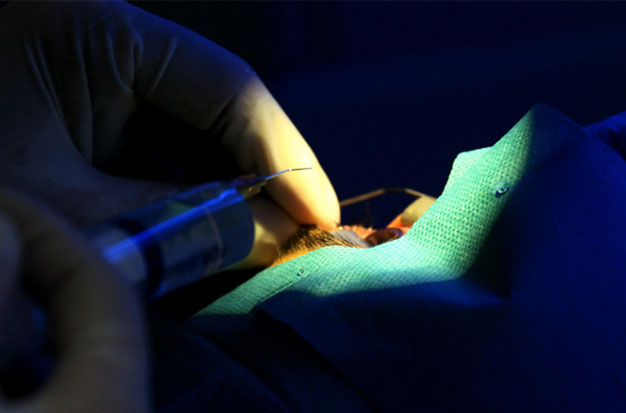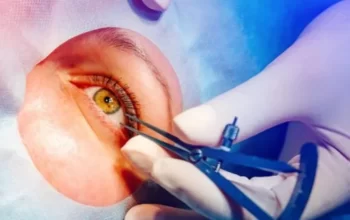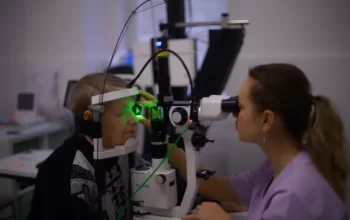
Surgical procedures can help you regain your vision if cataracts are causing blurry vision. How long does it take to recover from cataract surgery? The procedure usually only takes a few minutes for each eye.
How Long Does Cataract Surgery Last?
Cataract surgery is a quick procedure that is performed as an outpatient (in the eye doctor’s office). However, if you have cataracts in both eyes, you’ll need to make two separate appointments. The procedure itself only takes about 15 to 25 minutes per eye.
Pre- and post-operative time should be factored in as well, as they can extend your appointment by 30-45 minutes. Typically, eye drops and local anesthesia are given prior to surgery. Following the procedure, the eye doctor will ask you to wait for 30 minutes in a recovery area.
The entire cataract surgery appointment should last between 60 and 90 minutes. You’ll require transportation home after the procedure, and you should plan on returning to the doctor’s office frequently throughout the recovery period so your eye health can be properly monitored.
What Is Cataract Surgery
You can go home the same day as your cataract surgery because it is a simple outpatient procedure carried out under local anesthesia, which keeps you awake throughout the procedure. Your doctor will make a tiny incision in your eye during cataract surgery in Elkhart so that the cloudy lens can be taken out. It is taken out and is replaced with an intraocular lens (IOL), a tiny plastic lens.
In the event that you have cataracts in both eyes, you will require two separate surgeries spaced a few weeks apart. This allows your vision to recover and the first eye to heal.
There are two primary types of cataract surgery, and which one you have will determine how long it takes.
- Phaco Surgery: With phacoemulsification, the most popular form of cataract surgery performed in the U.S., the procedure can take as little as 10 minutes.
- ECCE Surgery: Phacoemulsification can take less time than extracapsular cataract extraction (ECCE), which typically takes 30 to 45 minutes to complete.
- Recovery Time: The patient stays in recovery for a brief period of time, usually 20 to 30 minutes, and is then allowed to leave for home if there were no complications with the surgery.

Factors That Effect The Cataract Surgery Time
Complications
Even the most straightforward eye care procedures have the potential to go wrong, even though cataract surgery typically has high success rates and a low risk of complications in Australia. Despite the eye surgeon’s skill, unanticipated complications may cause the cataract procedure to take longer because the surgeon may need to use additional interventions or simply move more slowly. The complexity of a cataract operation has been found to increase due to the following factors:
- Older age
- Diabetes
- Other concurrent eye diseases, such as glaucoma
Certain medications - Simultaneously performing cataract surgery with another eye care procedure, such as inserting a stent for glaucoma
- Hyperopia (long-sightedness), resulting in a narrowed space between the iris and the cornea
A very advanced or mature cataract, which can be difficult to fragment into pieces for removal from the eye
Expertise and experience of the surgeon
It should come as no surprise that an eye care professional will work faster and more effectively the more cataract surgery procedures they have completed. The most senior and experienced eye surgeons (consultants), in general, demonstrated significantly shorter times compared to junior surgeons, according to a study looking at the operating times of various levels of experience. While junior ophthalmologists completed their procedures in 19 to 41 minutes, consultants operated for 9 to 29 minutes on average.
Type of anesthesia
operation how long does cataract surgery take Melbourne surgery is most commonly performed with local or topical anesthesia. Topical anesthesia is infused through eye drops, whereas a local anesthetic may be injected around the eye area. When compared to local anesthesia, cataract surgeries utilizing topical anesthetic eye drops have been found to take much less time to complete. Although general anesthesia is rarely used for cataract surgery, it may be provided in the event of a unique need, such as mental impairment. The duration of the process could potentially increase as a result.
What To Expect After Cataract Surgery
In cataract surgery, the damaged lens from each eye is removed, and the cataract lens or IOL is placed in its place. The entire procedure for one eye takes about ten minutes. Patients may still experience some blurriness in their vision after surgery as their eyes start to heal, as well as a sandy or gritty feeling. This is entirely typical and will fluctuate for a few days following surgery.
After the procedure, patients can resume their regular, day-to-day activities and notice improvements in their overall vision. As their eyes continue to acclimate to new lenses over the healing period, many individuals may even perceive brighter colors.
On the day following your cataract surgery, your vision may start to improve, but it will take a few weeks for your eyes to fully recover. While this is happening, you might experience some discomfort, but this should pass as your eyes continue to heal.
Furthermore, for one to two weeks after surgery, your surgeon will give you a clear shield to wear while you sleep. This will lessen the likelihood that you will scratch your eyes while you sleep and cause injury.
Can Cataract Surgery Affect How You See?
Unless you have a new issue that presents itself (like the after-cataract mentioned earlier or a separate eye disease), you should not have any cataract-related vision deterioration. In fact, you ought to notice a lot of improvements, like the capacity to drive more safely at night and to carry out errands more readily. However, keep in mind that cataract surgery may not eliminate your need for glasses and cannot stop your eyesight from changing in other ways.
Conclusion
it’s crucial that you visit your local eye doctor throughout your cataract surgery recovery to make sure your eyes are healing properly. Following your cataract surgery, you should keep an eye out for any serious problems. Contact your doctor right away for treatment if you experience any kind of vision loss, excruciating pain, or floaters in front of your eyes.



